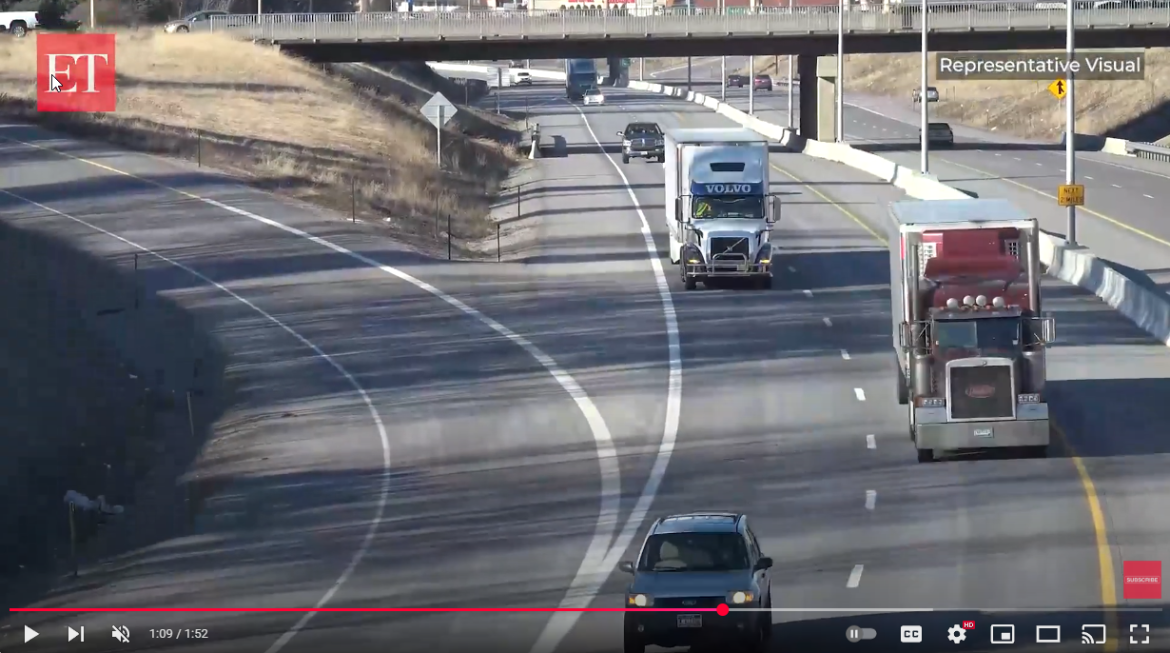President Donald Trump issues a controversial new executive order requiring all truck drivers operating within the United States to demonstrate English proficiency, igniting a wave of backlash from immigrant advocacy organizations, civil rights leaders, and members of the Sikh American community. The policy, announced during a speech framed as part of Trump’s second-term initiatives to enhance national security and economic competitiveness, mandates that commercial drivers must speak and understand English fluently or face license revocation and work restrictions.
In his announcement, Trump characterizes the order as a “common sense measure” to improve road safety, national unity, and communication efficiency across America’s transportation infrastructure. “If you want to drive on our highways, you must speak English,” Trump says. “If you can’t, you’re putting lives at risk, and you don’t belong behind the wheel of an 80,000-pound truck. It’s that simple.”
Almost immediately after the announcement, major Sikh advocacy groups, including the Sikh Coalition, publicly condemn the order as discriminatory and unconstitutional. Sikh Americans, many of whom make up a significant portion of the U.S. trucking industry workforce, argue that the policy unfairly targets immigrants and communities where English may not be a first language but whose members are otherwise skilled, trained, and legally qualified drivers. Sikh truckers, who often wear turbans and maintain visible religious identities, say they feel specifically singled out by both the language of the order and the cultural undertones of Trump’s remarks.
Civil rights organizations such as the ACLU also weigh in, warning that the executive order could lead to racial profiling, unconstitutional employment discrimination, and deepen existing labor shortages in critical sectors like supply chain transportation. According to federal data, immigrants represent over 20 percent of the U.S. trucking industry, filling critical labor gaps that domestic recruitment has struggled to meet for decades.
Backlash also erupts online and in major cities across the country, where immigrant advocacy groups stage rallies protesting what they describe as an attack on immigrant workers’ dignity and livelihood. Protesters chant, “Drivers built America,” while calling for the order’s immediate repeal.
Legal experts predict that lawsuits will quickly follow. Several attorneys representing trucking associations and immigrant advocacy organizations announce plans to challenge the executive order in court, arguing that it violates federal labor laws and constitutional protections against discrimination based on national origin.
The U.S. Department of Transportation (DOT) says it will begin issuing guidelines for implementation within the next 90 days, including criteria for language proficiency testing and procedures for appealing enforcement actions. Transportation Secretary Elaine Chao, during a separate press briefing, emphasizes that safety remains the primary concern, although she acknowledges the potential for litigation and widespread resistance.
The issue of language and trucking is not entirely new. Existing federal regulations under the Federal Motor Carrier Safety Administration (FMCSA) already require that commercial drivers operating across state lines must be able to communicate in English to respond to official inquiries, read road signs, and complete required reports. However, critics argue that Trump’s order goes far beyond those standards by demanding comprehensive fluency and tying language ability explicitly to immigration rhetoric.
Trump’s new mandate echoes broader themes from his first presidency, when immigration control, English-language advocacy, and “America First” policies dominated the national discourse. Supporters of the executive order, including several trucking associations aligned with conservative policy groups, praise the move, saying it ensures that drivers can quickly respond to emergencies, comply with law enforcement, and maintain clear communication in complex transport logistics.
However, logistics experts warn that the industry is already facing a severe driver shortage, and further restricting who can operate commercially could drive up shipping costs, disrupt supply chains, and worsen inflationary pressures across the U.S. economy.
As court challenges loom and protests intensify, the political and cultural fallout from Trump’s “Speak English or Get Out” order continues to grow, signaling yet another major flashpoint in the ongoing national debate over immigration, labor rights, and American identity.



